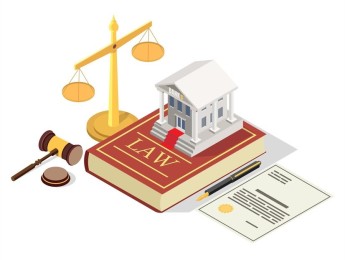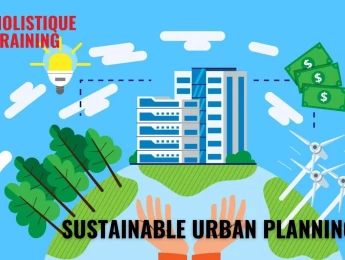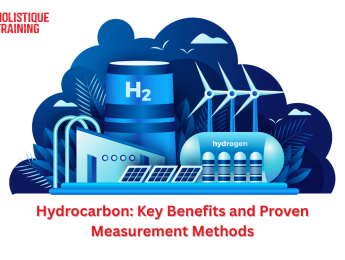- Table of Contents
- Understanding Contract Management
- The Role of a Contract Manager
- Contract Creation and Drafting
- Negotiation Facilitation
- Legal and Business Alignment
- Risk Mitigation and Management
- Oversight and Performance Monitoring
- Dispute Resolution and Continuous Improvement
- Contract Managers & Attorneys: Are They the Same Thing?
- Attorneys: The Architects of Legal Precision
- Contract Managers: Orchestrators of Operational Efficiency
- Collaboration and Synergy
- Steps to Become a Contract Manager
- 1. Educational Foundation
- 2. Gain Practical Experience
- 3. Continuous Learning
- 4. Advance Your Education
- 5. Build a Network
- 6. Hone Soft Skills
- 7. Embrace Lifelong Learning
- Characteristics of a Good Contract Manager
- Attention to Detail
- Negotiation Acumen
- Adaptability
- Strategic Thinking
- Communication Proficiency
- Problem-Solving Skills
- Analytical Mindset
- Relationship Building
- Ethical Integrity
- Continuous Learning
- Pursuing a Career in Contract Management: Is It Worth It?
- a) Lucrative Opportunities
- b) Diverse Industries
- c) Intellectual Challenge
- d) Job Security
- Conclusion
Contracts are the foundation of modern business transactions, serving as the legal framework that binds parties to their obligations and expectations. In this intricate dance of legality and business acumen, the role of a contract manager emerges as a linchpin for effective operations and risk mitigation. If you're intrigued by the dynamic interplay of law, negotiation, and organisational efficiency, then embarking on a journey to become a contract management expert might be the right path for you. In this comprehensive guide, we will explore the nuances of contract management, the role it plays in various industries, the steps to become a contract manager, the qualities that define a proficient contract manager, and the potential rewards of a career in this field.
Understanding Contract Management
Before we dive into the details, let's grasp the essence of contract management. At its core, contract management involves the creation, negotiation, execution, and oversight of contracts between two or more parties. Contracts can range from straightforward agreements for goods and services to complex multi-faceted deals that span international boundaries. Effective contract management ensures that these agreements are not only legally sound but also strategically aligned with the goals of the involved parties.
The Role of a Contract Manager
In the intricate web of modern business, contracts are the threads that weave together the promises, obligations, and expectations of parties involved. Amid this complexity, the role of a contract manager emerges as a central figure tasked with ensuring the smooth flow of operations, risk mitigation, and strategic alignment. Let's delve deeper into the multifaceted role that contract managers play throughout the contract lifecycle.
Contract Creation and Drafting
The journey of a contract begins with its creation and drafting, where the expertise of a contract manager becomes invaluable. During this phase, a contract manager works closely with stakeholders to outline the terms and conditions of the agreement. They carefully craft these terms to ensure clarity, specificity, and legality. This attention to detail is crucial to prevent misunderstandings and ambiguities down the line, reducing the risk of disputes.
Negotiation Facilitation
The negotiation phase is often a delicate dance between parties seeking to safeguard their interests. Here, the contract manager's role transforms into that of a facilitator, mediator, and advocate. They bridge the gap between the parties' aspirations, facilitating open communication and guiding the negotiations toward mutually beneficial solutions. This calls for exceptional communication skills, an acute understanding of each party's priorities, and the ability to navigate tense situations while maintaining a cooperative atmosphere.
Legal and Business Alignment
While not attorneys, contract managers possess a fundamental understanding of legal concepts. They collaborate closely with legal teams to ensure that contracts adhere to legal requirements and industry regulations. This collaboration extends to safeguarding the organisation's interests by aligning contracts with its overarching business strategy. Contract managers act as the bridge between legal compliance and strategic objectives, ensuring that each contract contributes positively to the organisation's growth.
Risk Mitigation and Management
Risk lurks in every business transaction, but a skilled contract manager has the foresight and expertise to mitigate it effectively. They identify potential risks associated with contract terms and conditions, pricing structures, delivery schedules, and other variables. By meticulously assessing these risks, contract managers can recommend adjustments, implement contingency plans, and guide parties toward risk-sharing arrangements that protect both sides from potential pitfalls.
Oversight and Performance Monitoring
Once the ink has dried and the agreement is in motion, a contract manager's responsibilities continue. They transition into the role of a vigilant overseer, monitoring the contract's execution and performance. This involves tracking key performance indicators, ensuring timely delivery of goods and services, and addressing any deviations from the agreed-upon terms. By maintaining a constant pulse on the contract's progress, contract managers can swiftly address any issues that arise and prevent minor hiccups from escalating into major setbacks.
Dispute Resolution and Continuous Improvement
In the event of disputes or disagreements, contract managers step in as problem solvers and mediators. Their comprehensive understanding of the contract's terms and the intent behind them enables them to navigate disputes with a balanced perspective. They collaborate with legal experts to explore resolution options, considering negotiation, mediation, or escalation to legal proceedings when necessary. Additionally, every contract's conclusion provides valuable insights for continuous improvement. Contract managers analyse what worked well, where challenges arose, and how processes can be enhanced in future contracts.
Contract Managers & Attorneys: Are They the Same Thing?
In the labyrinthine world of contracts, two key players often stand at the forefront: contract managers and attorneys. While they both navigate the legal intricacies of agreements, their roles, functions, and contributions are distinct. Understanding the differences between these roles is crucial for unravelling the complexities of contract management and legal counsel.
Attorneys: The Architects of Legal Precision
Attorneys, also known as lawyers or legal experts, are individuals who have undergone specialised education and training in the field of law. Their primary role is to provide legal advice, guidance, and representation to clients. In the context of contracts, attorneys ensure that the contract's terms and conditions comply with relevant laws, regulations, and legal precedents. They bring a wealth of legal knowledge to the table, ensuring that contracts are airtight from a legal perspective.
Attorneys are instrumental in drafting contract language that accurately reflects the parties' intentions while safeguarding their rights and interests. Their expertise lies in interpreting complex legal jargon, identifying potential legal risks, and offering strategies to mitigate those risks. Attorneys are often called upon during negotiations to provide legal insight and to craft clauses that protect their clients in various scenarios.
Table 1: Key differences between a contract manager & an attorney
Aspect | Contract Manager | Attorney |
Primary Focus | Operational, negotiation, strategic | Legal compliance, litigation focus |
Expertise Application | Strategic alignment, risk mitigation | Legal interpretation, case strategy |
Role in Negotiations | Active participant and facilitator | Lead negotiator, legal representation |
Operational Involvement | Oversee execution and implementation | Legal document creation and review |
Strategic Contribution | Align contracts with organisational goals | Ensure legal compliance and minimise risks |
Contract Managers: Orchestrators of Operational Efficiency
On the other side of the coin, contract managers are focused on the operational aspects of contracts rather than solely the legal aspects. They are the professionals who oversee the entire lifecycle of contracts, from their creation to execution and even beyond. Contract managers possess a multifaceted skill set that encompasses legal knowledge, negotiation prowess, strategic thinking, and project management abilities.
While contract managers collaborate with attorneys to ensure legal compliance, their role extends beyond legality. They bridge the gap between the legal intricacies and the practical realities of executing contracts. Contract managers work closely with stakeholders to define clear and realistic contract terms, facilitate negotiations to achieve favourable outcomes for all parties, and monitor contract performance to ensure compliance with agreed-upon terms.
Collaboration and Synergy
Contrary to being mutually exclusive, the roles of attorneys and contract managers often overlap in a complementary manner. Attorneys provide the legal foundation upon which contracts are built, ensuring that they are legally enforceable and protective of their clients' rights. Contract managers, on the other hand, infuse contracts with operational functionality, strategic alignment, and risk mitigation measures that go beyond legality.
This collaboration often results in well-rounded contracts that not only stand up in a court of law but also effectively guide business operations and relationships. Contract managers, in particular, leverage their understanding of legal concepts to facilitate negotiations and to communicate effectively with legal teams, ensuring that contracts meet the needs of all parties involved.
Steps to Become a Contract Manager
Embarking on a journey to become a proficient contract manager requires a deliberate and strategic approach. This multifaceted role demands a blend of education, experience, skills, and continuous learning. Here's a comprehensive breakdown of the steps to guide you on your path toward becoming a skilled contract management expert.
1. Educational Foundation
The journey begins with obtaining a solid educational foundation. While there is no strict educational path to become a contract manager, having a relevant bachelor's degree is a significant advantage. Fields such as business, law, economics, supply chain management, or procurement provide a solid groundwork for understanding the intricacies of contract management.
For those aspiring to deepen their legal understanding, pursuing a law degree (JD) is a pathway that can provide a comprehensive understanding of legal principles, contract law, and negotiation strategies.
2. Gain Practical Experience
Securing internships or entry-level positions in industries related to procurement, supply chain management, or legal departments is invaluable. These opportunities offer exposure to real-world contract management scenarios and allow you to observe the practical application of contract principles.
Hands-on experience equips you with the ability to navigate challenges, negotiate terms, and interact with stakeholders effectively. It's during this phase that you can develop a nuanced understanding of the operational aspects of contracts.
3. Continuous Learning
The field of contract management is dynamic, with evolving legal regulations and best practices. Staying informed is key to success. Attend workshops, webinars, and seminars related to contract management, negotiation skills, and legal developments. Engage with professional organisations in the field to access resources, networking opportunities, and insights from experienced practitioners.
4. Advance Your Education
To enhance your expertise, consider pursuing advanced education such as a master's degree or specialised certifications. Master's programmes in contract management, business law, or related fields offer a deeper dive into advanced topics and strategic considerations. Specialised certifications from organisations like the International Association for Contract and Commercial Management (IACCM), the National Contract Management Association (NCMA) in the US, or the Contract Management Certificate from theInstitute of Commercial Management (ICM) in the UK validate your skills and knowledge.
5. Build a Network
Networking is a cornerstone of career growth in any field. Attend industry events, workshops, and conferences to connect with professionals in contract management, legal, procurement, and related disciplines. Engage in online forums, LinkedIn groups, and social media platforms to join discussions, share insights, and learn from others in the field.
6. Hone Soft Skills
While technical expertise is crucial, soft skills are equally vital for a successful contract manager. Develop strong communication skills to convey complex ideas clearly and negotiate effectively. Problem-solving abilities help you navigate disputes and unforeseen challenges that may arise during contract execution. Analytical skills enable you to assess risks, evaluate performance, and make informed decisions.
7. Embrace Lifelong Learning
Contract management is a dynamic field that continues to evolve with changing business landscapes and legal frameworks. Commit to lifelong learning by staying curious, adapting to new technologies, and continuously enhancing your knowledge base. Stay receptive to new strategies, tools, and best practices that can elevate your contract management capabilities.
Characteristics of a Good Contract Manager
Becoming a proficient contract manager isn't just about mastering the technical aspects of contracts; it's about embodying a range of qualities that elevate your ability to orchestrate successful agreements. As the linchpin between legal intricacies and operational realities, a contract manager must possess a unique blend of traits that enable them to navigate negotiations, mitigate risks, and ensure contracts are not just legally sound, but strategically impactful. Let's explore the characteristics that define a good contract manager in greater depth.
Attention to Detail
Contracts are laden with intricate language and fine print. A keen eye for detail is paramount to catch even the subtlest of nuances that can significantly impact the interpretation and execution of a contract. A single missed clause or ambiguity could lead to misunderstandings, disputes, or legal complications down the line.
Negotiation Acumen
Negotiations are the crucible where contracts take shape. A skilled contract manager possesses the ability to navigate these negotiations, finding common ground between parties while securing terms that align with their organisation's objectives. Effective negotiation involves active listening, persuasive communication, and a knack for compromise that satisfies both sides.
Adaptability
In the realm of contracts, change is a constant. External factors, market dynamics, and unforeseen events can all influence contract terms. A good contract manager remains adaptable, ready to pivot strategies, revise terms, and handle unexpected challenges with poise. Their ability to respond to changing circumstances ensures that contracts remain effective in dynamic business environments.
Strategic Thinking
A contract manager is not just an administrator; they are a strategic thinker. They understand the broader business goals and objectives of their organisation and align contract terms accordingly. Every contract becomes an opportunity to not only secure goods and services but also to further the organisation's strategic ambitions.
Communication Proficiency
Clear communication is the glue that holds contracts together. Contract managers excel at conveying complex legal concepts to non-legal stakeholders, ensuring everyone comprehends their rights, responsibilities, and obligations. Effective communication minimises misunderstandings and fosters a cooperative atmosphere, key to successful contract execution.
Problem-Solving Skills
Contracts rarely proceed without a hitch. Effective contract managers possessproblem-solving prowess, enabling them to address challenges that arise during the contract's lifecycle. From minor discrepancies to unforeseen obstacles, they approach each situation with a solution-oriented mindset, ensuring the contract stays on course.
Analytical Mindset
Risk assessment is a central aspect of contract management. A good contract manager possesses stronganalytical skills to evaluate potential risks associated with contract terms, financial implications, performance metrics, and regulatory compliance. This ability to foresee and mitigate risks minimises negative impact on both parties.
Relationship Building
A contract manager doesn't just manage agreements; they manage relationships. Building and maintaining positive relationships with stakeholders, including suppliers, clients, legal teams, and internal departments, is essential. Effective collaboration enhances the likelihood of successful contract execution and paves the way for future partnerships.
Ethical Integrity
Contracts are built on trust and ethical conduct. A good contract manager upholds high ethical standards, ensuring that agreements are fair, transparent, and aligned with legal and moral principles. Their integrity inspires confidence in their ability to navigate agreements with honesty and fairness.
Continuous Learning
The field of contract management is dynamic, evolving alongside legal changes and industry trends. A proficient contract manager embraces continuous learning, staying updated on new regulations, negotiation strategies, and technological advancements. This commitment to growth ensures their expertise remains relevant and valuable.
Pursuing a Career in Contract Management: Is It Worth It?
As the complexity of business transactions grows, the need for skilled contract managers becomes increasingly evident. A career in contract management offers a range of benefits:
a) Lucrative Opportunities
Experienced contract managers often earn competitive salaries due to the critical role they play in risk reduction and operational efficiency. Beyond base salaries, many organisations recognise the value of skilled contract managers by offering performance bonuses and incentives tied to successful contract outcomes. The financial rewards reflect the impact contract managers have on an organisation's bottom line, making it a financially rewarding career choice for those with the necessary skills and expertise.
b) Diverse Industries
Contract management transcends industries, from healthcare to construction to IT contract management, offering a variety of specialisation options. This diversity provides professionals the opportunity to work in sectors they are passionate about or to gain broad industry exposure. The adaptability of contract management skills across various fields enhances career flexibility, allowing individuals to explore different sectors or specialise in areas of particular interest, contributing to a dynamic and fulfilling professional journey.
c) Intellectual Challenge
The intersection of legal, financial, and strategic considerations provides a stimulating environment for those who enjoy intellectual challenges. Contract managers navigate complex negotiations, interpret and apply legal principles, and strategise to align contracts with broader organisational goals. This multifaceted nature of the role not only keeps professionals engaged but also fosters continuous learning. For those who thrive on intellectual stimulation and problem-solving, a career in contract management offers a fulfilling and intellectually rewarding path.
d) Job Security
As long as businesses engage in contracts, the demand for skilled contract managers will persist. Contract management is a fundamental aspect of business operations, ensuring that agreements are fair, legally sound, and aligned with strategic objectives. The ongoing need for businesses to manage contracts, coupled with the increasing complexity of regulatory environments, enhances job security for contract management professionals. This stability makes it a reliable career choice, providing professionals with confidence in their long-term employment prospects.
Conclusion
Becoming a skilled contract manager requires more than just a surface-level understanding of contracts. It entails embodying a diverse range of qualities that empower you to steer agreements toward success. Whether it's meticulously scrutinising contract clauses, adeptly negotiating with stakeholders, or navigating unexpected challenges, the characteristics of a good contract manager collectively shape a professional capable of orchestrating the symphony of agreements with finesse.
As you cultivate these qualities, remember that there's a guided path to expedite your journey. Our comprehensive course, ‘Becoming an Expert in Contract Management,’ is designed to provide you with the knowledge, skills, and practical insights needed to excel in this dynamic field. From legal intricacies to strategic alignment, our course equips you to navigate the complexities of contracts with confidence. Are you ready to unlock your potential and become a sought-after contract management expert? Enrol now and embark on a transformative learning experience.























